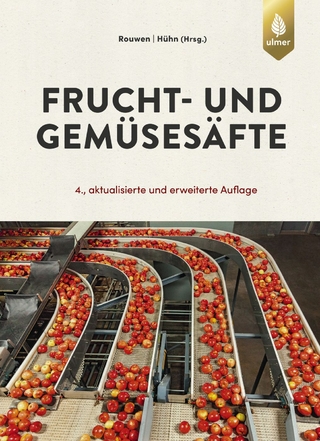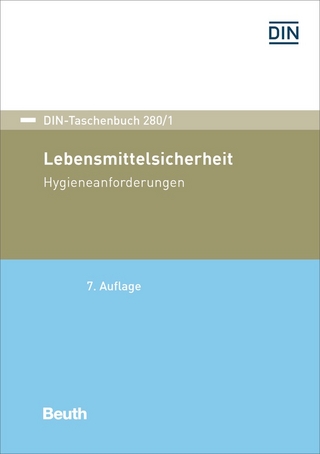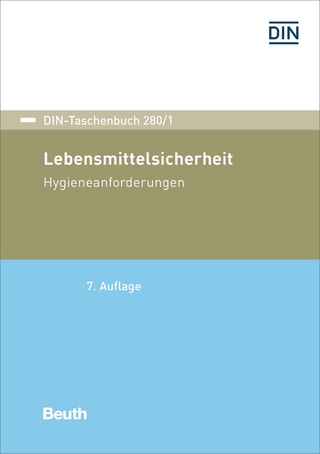
Starchy Crops Waste Valorization
Academic Press Inc (Verlag)
978-0-323-90846-7 (ISBN)
- Noch nicht erschienen (ca. September 2025)
- Versandkostenfrei innerhalb Deutschlands
- Auch auf Rechnung
- Verfügbarkeit in der Filiale vor Ort prüfen
- Artikel merken
The Underground Starchy Crops of South American Origin book series brings information on the applied level of producing and using starch from a range of plants grown in tropical and subtropical areas that have South American origin. As the final volume in the series, Starchy Crops Waste Valorization: Recovery and Treatment enables stakeholders to valorize waste by transforming it into by-products that can reach the market and reduce processing costs. It also explains how to reduce or eliminate problems of environmental contamination. Residues covered are of two types: crop residues and industrial residues.
Marney Pascoli Cereda, Ph.D. has graduated in Agronomic Engineering at University of São Paulo, Brazil. She idealized and was the first Director of a Research Centre specialized in tropical starches. For her activities in research, she received in 2000 the Medal of Merit from the São Paulo Government. She also realized post-doctoral internships in Spain, France and England and technical visits in China, Thailand, Japan, India and in most Central and South American countries. Her researches focus mainly in food technology and development. In food technology she works mainly with food security, food safety and the use of agroindustry’s wastes. In rural agroindustry’s, she works in the development of processes in social technology and valorization of family farming products production by innovative technologies. She developed 3 patents and other 6 are in analysis process. From 2018 she remains an independent researcher and coordinates the Agro: Research, Processes and Products Laboratories. Olivier François Vilpoux, Ph.D. has graduated in Agronomic Engineering at “Institut Supérieur D'agriculture (1991), in France, with a Master’s in Business from the Institut de “Gestion Internationale en Agro Alimentaire (1992) and a PhD in Business from the “Institut National Polythecnique de Lorraine (1997), France. From 2004 to 2019 he was a professor at the Catholic University of Campo Grande (UCDB) and Professor of the Master and Doctorate Program in Local Development (UCDB), Brazil. From 2014 to 2019 he has been professor of the Doctorate in business at the Federal University of Mato Grosso do Sul. Currently he is professor of the Master of Management and Environmental Technology at the Federal University of Mato Grosso (UFMT). He works mainly on the following themes: collective action, cooperatives and family farming.
1. Introduction. Circular Economy and biorefinery concepts applied to the recovery of field and industrial waste
2. Quantification and characterisation of industrial by products and wastes of cassava starch extraction and flour processing
3. Quantification of vegetable biomass of commercial cassava cultivation
4. Cassava leaves as vegetable protein and minerals source for human nutrition
5. Process of extraction, characterisation, and applications for protein from cassava leaf
6. Use of integrated field and industry waste. Case study of farinheiras in Brazil
7. Characterisation of bran of cassava and arrowroot starch extraction as fibre source
8. Commercial processes for drying wet wastes. The case of starch extraction bran
9. Case study: Cassava bran from starch extraction for ethanol fermentation and potencial as dietetic fibre
10. Use of cassava bran from the starch extraction industry in animal feed
11. Viability enrichment with nitrogen by the production of amire
12. Direct use of cassava waste-water as fertilizer and pest and nematode control
13. Innovation and future in anaerobic digestion of liquid cassava t wastewater to obtain high performance in treatment and energy production
14. Liquid waste as by-products as a substrate for bioprocess: citric acid,protein, and aromatic production
15. Soil as bioremediation for cyanide liquid wastewaste
16. Valuation of by products to reduces production cust
| Erscheint lt. Verlag | 1.9.2025 |
|---|---|
| Verlagsort | Oxford |
| Sprache | englisch |
| Maße | 191 x 235 mm |
| Themenwelt | Technik ► Lebensmitteltechnologie |
| ISBN-10 | 0-323-90846-2 / 0323908462 |
| ISBN-13 | 978-0-323-90846-7 / 9780323908467 |
| Zustand | Neuware |
| Informationen gemäß Produktsicherheitsverordnung (GPSR) | |
| Haben Sie eine Frage zum Produkt? |
aus dem Bereich


